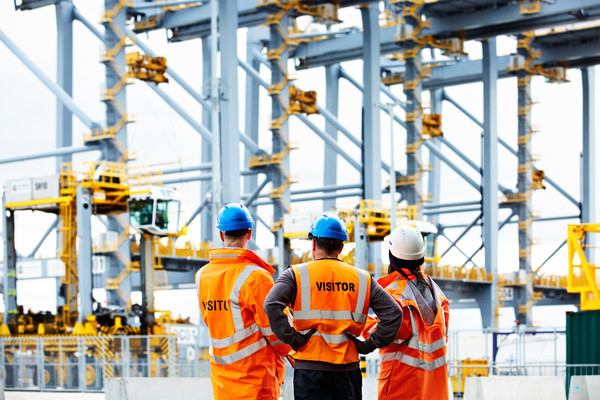The Sub-Committee on Carriage of Cargoes and Containers (CCC) deals with the carriage of packaged dangerous goods, solid bulk cargoes, bulk gas cargoes and containers. It keeps reviews and revises International Maritime Solid Bulk Cargoes Code (IMSBC Code) and the International Maritime Dangerous Goods (IMDG) Code.
The Sub-Committee also keeps under review other codes, including the International Code of Safety for Ships using Gases or other Low-flashpoint Fuels (IGF Code) and the International Code for the Construction and Equipment of Ships Carrying Liquefied Gases in Bulk (IGC Code).
The Sub-Committee also works on the safety provisions relating to fuels aside from fuel oil and low flashpoint fuel. This work is a component of important efforts taken by the Sub-Committee in the context of the shipping industry’s requirements for new fuels and propulsion systems to meet decarbonisation ambitions established in the Initial International Maritime Organization (IMO) GHG Strategy.
The 8th session of the Sub-Committee on Carriage of Cargoes and Containers (CCC 8) met at the IMO building in London from 14th to 23rd September 2022. The meeting was chaired by Ms MaryAnne Adams from the Marshall Islands. Here is a summary of the key issues discussed:
Mandatory reporting of lost containers
The Sub-Committee agreed to draft new requirements for the mandatory reporting of lost freight containers at sea. Containers lost overboard can be a serious hazard to navigation and safety at sea in general, in particular to recreational sailing vessels, fishing vessels, other small craft as well as the marine environment. The work of the Sub-Committee on the detection and reporting of lost containers is also relevant to the organisation’s work on addressing marine litter.
The Sub-Committee approved draft amendments to the Safety of Life at Sea (SOLAS) and the Prevention of Pollution from Ships (MARPOL) treaties. The amendments include additional new paragraphs to SOLAS chapter V on Danger messages. They would require the master of every ship involved in the loss of freight containers to fully communicate the particulars of such an incident by appropriate means without delay and possibly to ships in the vicinity, to the nearest coastal State, and also to the flag State. In addition, the flag State would be required to report the loss of freight containers to the IMO.
The draft amendments also add a new paragraph to SOLAS chapter V Regulation 32 on Information required in danger messages, specifying the information to be reported, including, where available, position, number of containers, etc.
The Sub-Committee agreed that the draft amendments should be enacted on 1 January 2026. Furthermore, it was agreed that the IMO Secretariat would develop the relevant module under the IMO Global Integrated Shipping Information System (GISIS) for the receipt of reports from flag States.
IUMI had co-sponsored a submission to CCC 8 to support the reporting of lost containers.
Safety of alternative fuels
Matters related to newer fuel types are considered part of the agenda item on the International Code of Safety for Ships using Gases or other Low-flashpoint Fuels (IGF Code). The IGF Code initially focused on liquefied natural gas (LNG), but work is now underway to consider other relevant fuel types.
Interim guidelines for the safety of ships using methyl/ethyl alcohol as fuel have already been developed by the Sub-Committee. Interim guidelines for ships using fuel cells were adopted by MSC 105 in April 2022.
Hydrogen and ammonia as fuel and low flashpoint fuels
A working group further developed draft interim guidelines for ships using hydrogen as fuel and initiated discussion on the development of interim guidelines for the safety of ships using ammonia as fuel. The two sets of draft guidelines will be expanded further in a correspondence group reporting to the next session of the Sub-Committee.
The Intersessional Correspondence Group on Development of technical provisions for safety of ships using alternative fuels was re-established, to:
— further develop the draft interim guidelines for ships using hydrogen as fuel
— develop Interim Guidelines for the use of oil fuels with a flashpoint between 52°C and 60°C, covering oil-based fossil fuels, synthetic fuels, biofuels and any mixture thereof
— develop Interim Guidelines for the safety of ships using ammonia as fuel
CCC workplan
A workplan agreed by the Sub-Committee envisages:
CCC 9 meeting in 2023
— prepare amendments to the IGF Code in relation to natural gas
— further develop safety provisions/guidelines for low flashpoint oil fuels
— further develop/finalise guidelines for ships using hydrogen as fuel
— further develop/finalise guidelines for ships using ammonia as fuel
— if time permits, start to discuss the development of mandatory instruments regarding methyl/ethyl alcohols
CCC 10 in 2024
— finalise guidelines for ships using ammonia as fuel
— further develop/finalise [safety provisions/guidelines] for low-flashpoint oil fuels
— further develop of mandatory instruments regarding methyl/ethyl alcohols
— if time permits, begin discussions on the development of mandatory instruments regarding fuel cells
CCC 11 in 2025
— finalise mandatory instruments regarding methyl/ethyl alcohols
— further consider the development of mandatory instruments regarding fuel cells
Fires originating from vehicles
The Sub-Committee discussed a proposal to replace specific IMDG Code special provisions with a new special provision in response to recent fire incidents occurring on vehicle carriers.
In light of continued reports of serious incidents caused by fires originating from vehicles, the Sub-Committee established a Correspondence Group on the Review of Transport Provisions for Vehicles to continue consideration of amendments to transport provisions for vehicles and develop and prepare suitable measures to address the hazards arising from shipments of vehicles in the requirements of the IMDG Code.
